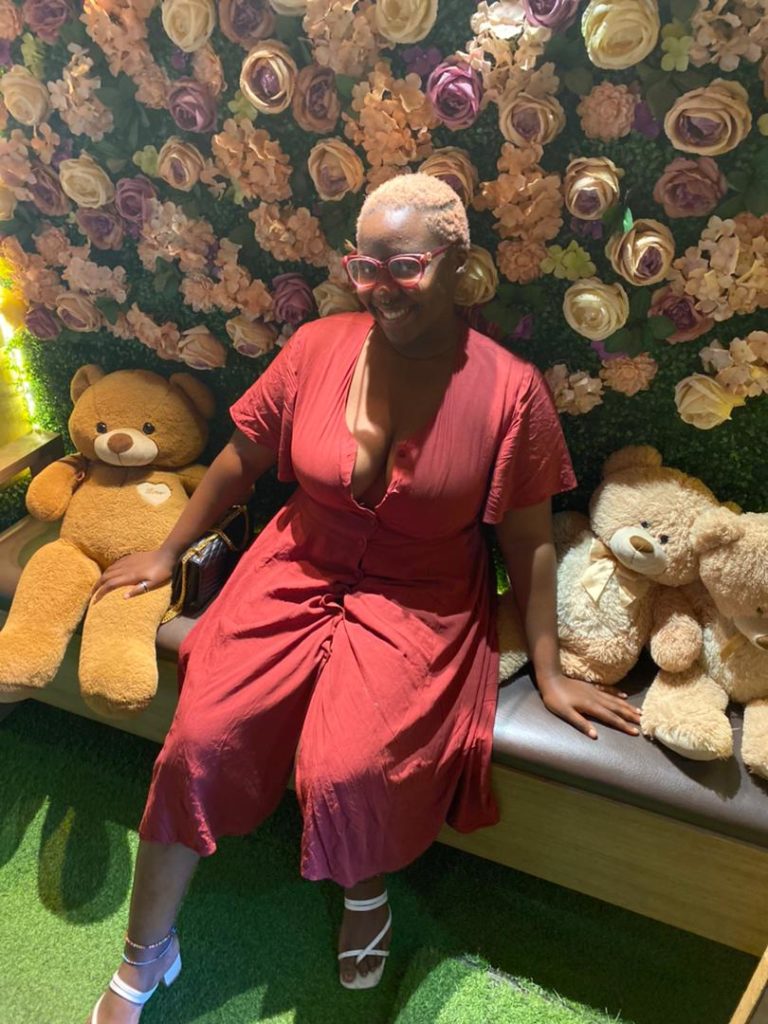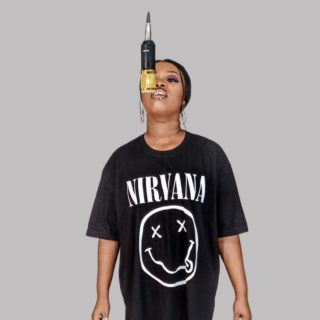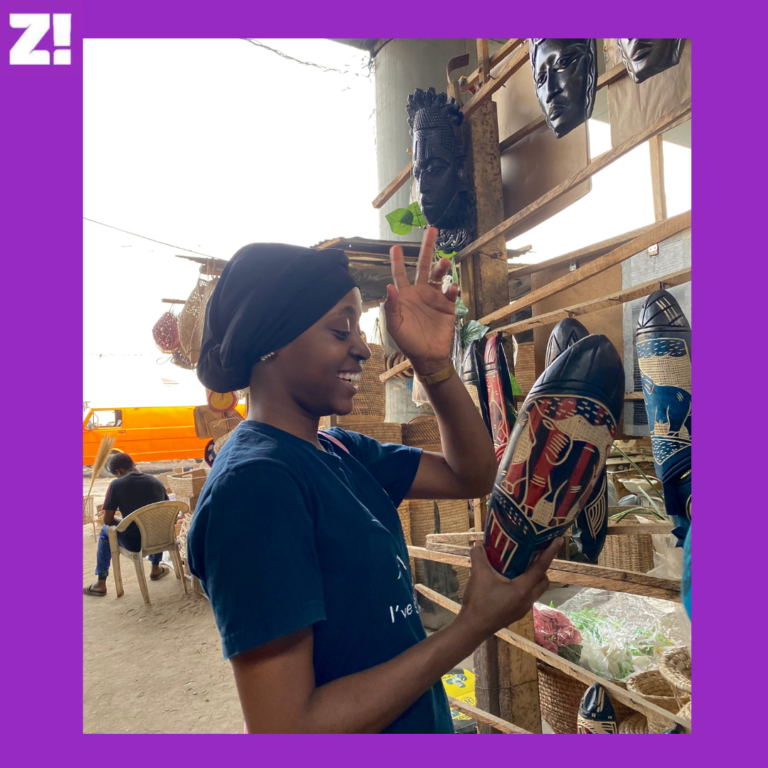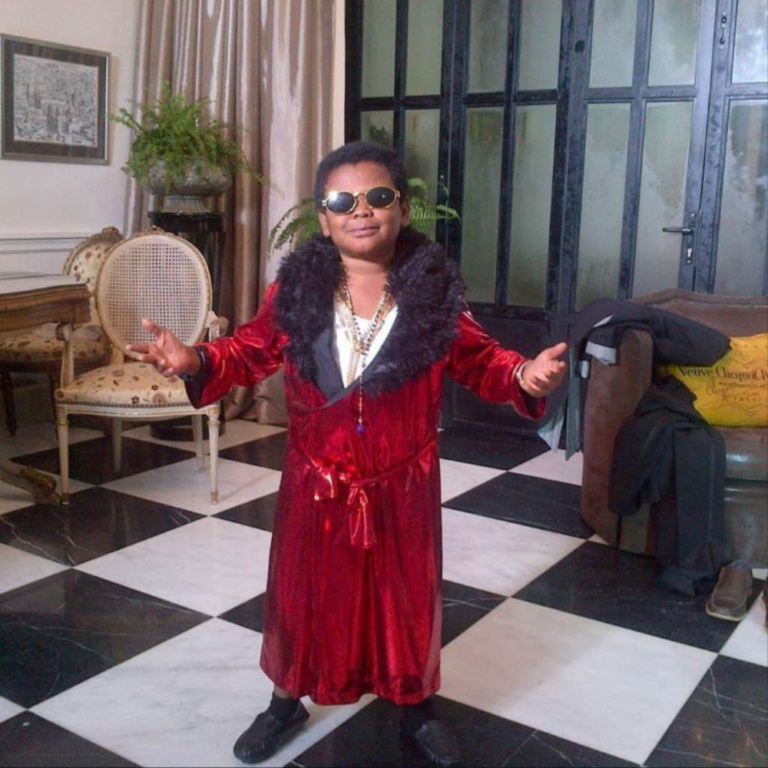My name is Itohan, my pronouns are she/her, and I’m a storyteller.
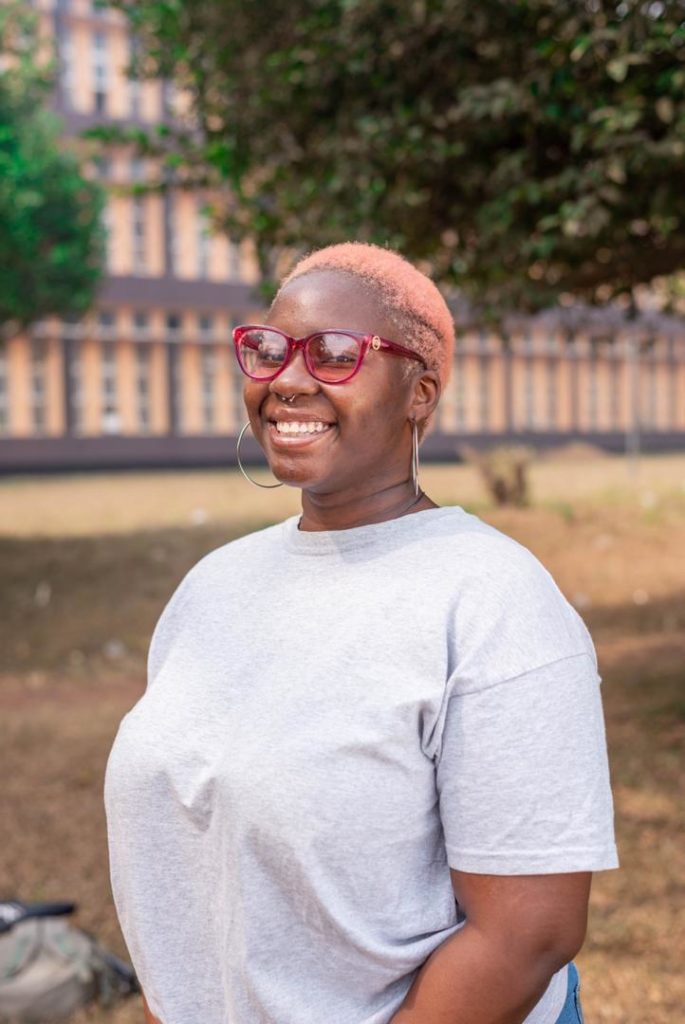
I think I’m a very open book. There’s nothing about me people won’t immediately see and know. I’m a shawarma lover, and that’s my brand.
Storyteller? Tell me about that
Not so fun fact: everyone refers to me as a writer and that sounds like a plain job. I tell stories, meaning, I create and retell people’s experiences in ways that capture other people’s attention. I believe human beings are books, and every single person has a story written inside them. My job is to pry them open and take as many stories as possible.
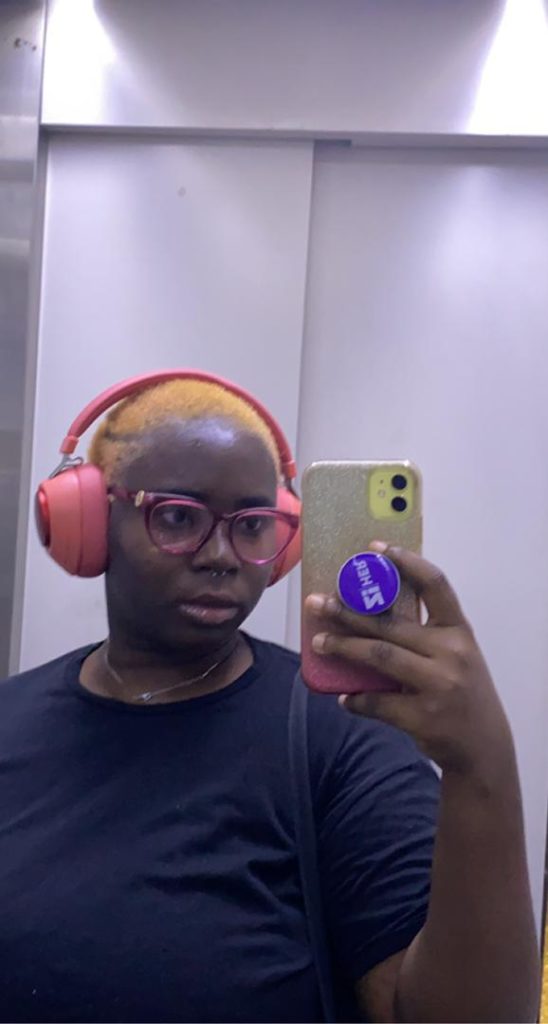
Pry? By any means?
Laughs* Not by any means. Of course, it’s important for the people sharing their stories to be comfortable telling them. Some people have great stories but need a little encouragement.
For example, whenever I interview people, I ask them to tell me a story, and they’re like they don’t have anything to tell, but once they start, I hear the most amazing stories.
Making them comfortable and volunteering information about yourself makes them more likely to share, so I have their stories and they have mine. If I fuck up, they can fuck me up. Consider it trading secrets.
Can you share one of those stories that stuck with you?
I can never forget the story of a woman who reached out to me in 2019 when I was writing my abortion series. She told me about how an abortion had traumatised her physically and mentally because of the terrible state of abortion care in Nigeria.
She really needed it so she had to go through quack doctors. She was sick for a month, mentally scarred and kept hearing babies’ voices. It really stuck with me because her life would’ve been so much easier if we had better, more progressive healthcare facilities I’m glad I got to tell her story.
Did you always want to be a storyteller?
No, actually. I wanted to be a lawyer when I was little. Wait, I don’t think I actually wanted to be a lawyer. Everyone said I talked too much, so being a lawyer would be perfect. My family wanted me to be a doctor, but I couldn’t pass basic maths, so that was out of the question. My brain is constantly in wonderland and numbers destroy the fairytale in my head.
What did you end up studying?
I studied English in uni. My parents are still hoping I’ll go back to study law. I’m just 21, but if I have to go back to school for anything, it’ll be something I like, like psychology.
They also think English is a gateway to getting into law school, but I’m not down for that. I want to teach English when I retire. I even considered marketing, but I heard you had to do math in Jamb for that. Anything that involves maths, I’ll simply run away from it.
Very valid. I’m horrible at math too
I hate maths so much that I had a dream that someone asked me for the area of a parallelogram, and I woke up crying.
Okay, you win. That sounds horrible. When did your storyteller dreams come into the picture?
When I was little, I despised eating. We had this driver who made a deal with me that if I ate, he would tell me a story. He never told me the same story twice, and I feel like he came up with some of them on the spot just so I could eat.
I had an aunt who’s late now. She was an English teacher who lived in Benin, and whenever she came to Lagos, she’d come with books and tell me stories. In secondary school, my English teacher told me she loved my letters because I focused on what I wanted to express through them and created beautiful words. This went straight to my head.
I want to believe these interactions shaped me into becoming a non-fiction writer, plus I really like amebo.
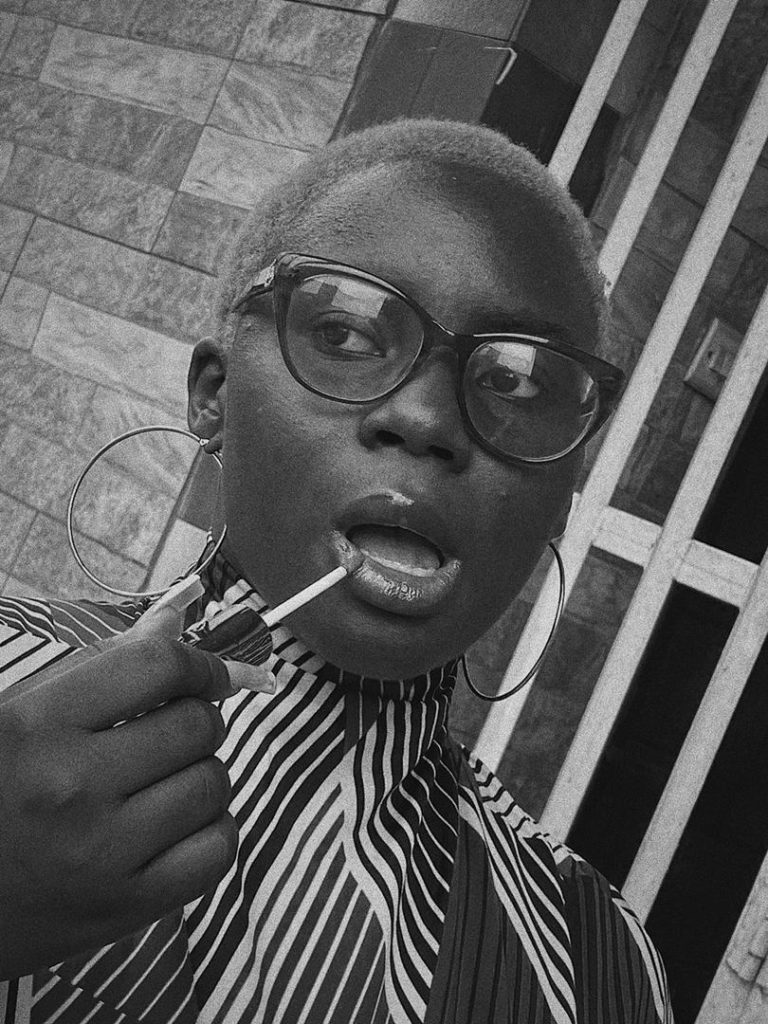
What happened after secondary school
I was sick, so I missed my jamb date and had to wait for a year. I wrote a lot during this period. I wrote letters and poems and told myself that one day, I’d write a book. I even had a title, but I won’t reveal it because I’m protective of it. Anyway, I told my father, and he said, “Okay, where’s the book?” I had to explain that it hadn’t been written. He went off on me, comparing me to Chimamanda.
First of all, I’m not a terf, so tell me to be better than someone non-terfy. It got to me. I got into uni and took creative writing classes. I joined a creative writing workshop but left halfway because I went to do love with a man and he annoyed me. Plus, I didn’t feel like I was learning anything. After all that, I started a blog.
A blog? Tell me about that
Valentine’s day was coming, and I was talking to a friend about how dating as a creative is a wild experience. So I wrote an article titled: “Creatives and the People Who Love Them”. Then, I did an abortion series, wrote about fatphobia, homophobia and the queer dating scene in Lagos, and eventually, I applied for a writing job. Let me tell you something; they don’t rate writers oh. Someone offered to pay me two naira per word.
Girl! What’s the lowest offer you’ve ever gotten?
They told me to write three articles a day, five days a week, for ₦5k a month. Original articles oh. I took the job because I heard three a week. Naira still made sense, so I thought it would cover my data. Plus, I had pocket money from my parents. I just wanted to feel useful.
Then on my first day, I wrote one article, and they called to ask for the remaining two. I was shocked and asked if I had to submit it in advance. When I heard three articles a day, I quit. That’s the shortest job I’ve ever had, four days and three of those were Easter public holidays.
The disrespect! What about the best offer?
Fun fact: I turn down offers for my peace of mind. If it stresses me too much before I start, I’ll leave it. But a close estimate would be an offer to write a book. They told me to name my price. Like, they’d pay anything I asked for. I thought they were using me to launder money, so I disagreed. It was scary. I didn’t want them to flag my account because I knew I could be greedy. I’d have asked for five million.
You know what? Same. How many stories have you written?
Wow, I can’t say, but I write a lot. If I follow the schedule made by my editor, I write like 20 articles a month. That’s minus what I write outside my job and on my blog. I’ve written over 200 articles, if not more.
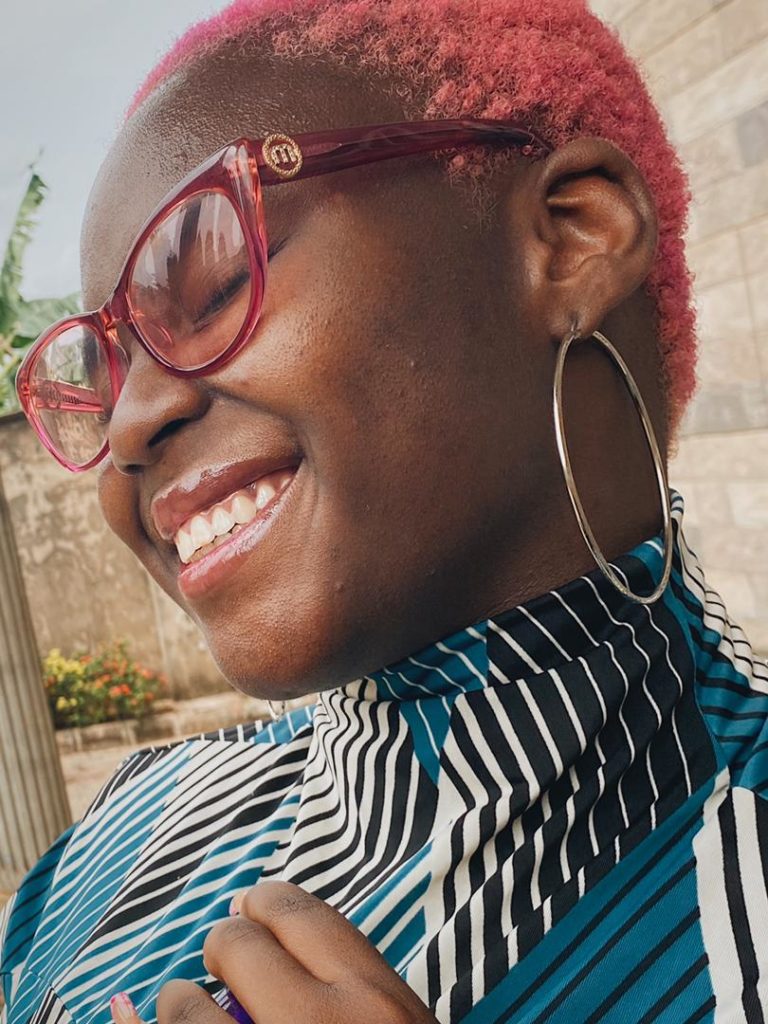
How do you juggle writing for a job with personal and freelance work?
The trouble with writing outside is I don’t like my name attached to it. I get embarrassed. I like when they say “Contributor” instead. That’s good enough for me. Also, I enjoy writing, so if it’s not a project I’d enjoy, I’ll drop it because I put a lot of myself into everything I write. Writing is a very long process. You have to edit and rewrite and, if you aren’t enjoying what you’re writing about, the constant rereading and rewriting will stress you out.
What’s your favourite thing about being a storyteller?
Transporting people into a world they didn’t know could exist. When I started writing, people called me a feminist writer. I wrote a lot about women and women’s issues, and then, I fell in love and became a relationship and sex writer. I got more interested in my sex life and started to read more about it.
I was so invested that I began to write about friendships, partnerships, the whole spectrum of it. I say this all the time, but I would write for free if it’s a good story. Nobody should tell me to do that in this economy, but I would.
Do you feel fulfilled as a storyteller?
Not yet.
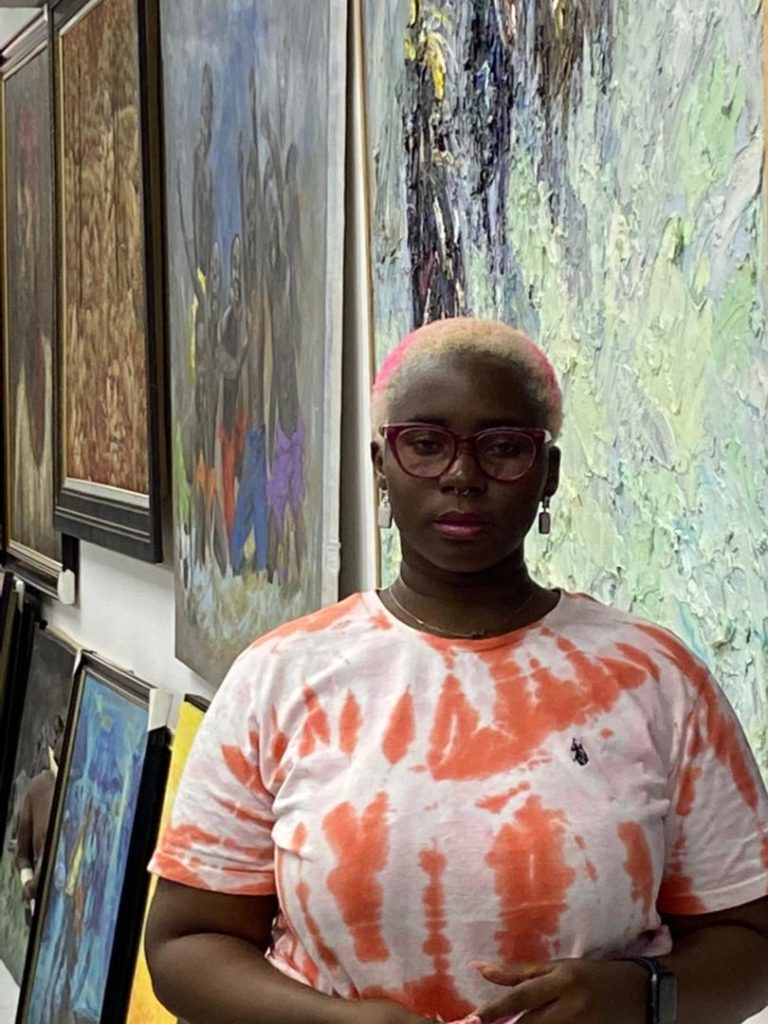
Why not?
My ideal life is to travel and write. There are so many interesting people outside Nigeria, and I want to tell all their stories. I want to talk to the market women, fish sellers and CEOs (even though I hate rich people, I want to know what made their hearts so dark). I’m very curious and, until I’ve told the story of everybody on earth, I may never be fulfilled.
How will you achieve that?
Well, I’ll keep writing and meeting people. To write non-fiction, you have to meet people. I’ll put myself out there more. I currently stay in Ogun state. When I leave my parent’s house, I can travel all over Nigeria to tell stories.
Any writing advice you’d like to share?
As a storyteller, the best way to tell stories is to become a safe space for those stories. You have to work on building trust, but you also need to create boundaries so you don’t get overwhelmed in the process.
You don’t want to become vulnerable to the point where your mental health is in distress. Sometimes, people come to you with sad stories about rape, murder and abuse, and as much as you want to tell those stories, it can take a toll on you.
Can you give an example of when you experienced this?
Recently, I wanted to write a story about my eating disorder. I’d never really sat down to think about it, but I’d just eaten so I became so aware of the food in my stomach that I started to throw up and couldn’t eat properly for the next week.
The thought of writing that story was overwhelming, and I still haven’t written it. Be a safe space for people’s stories but not at the risk of your mental health.
